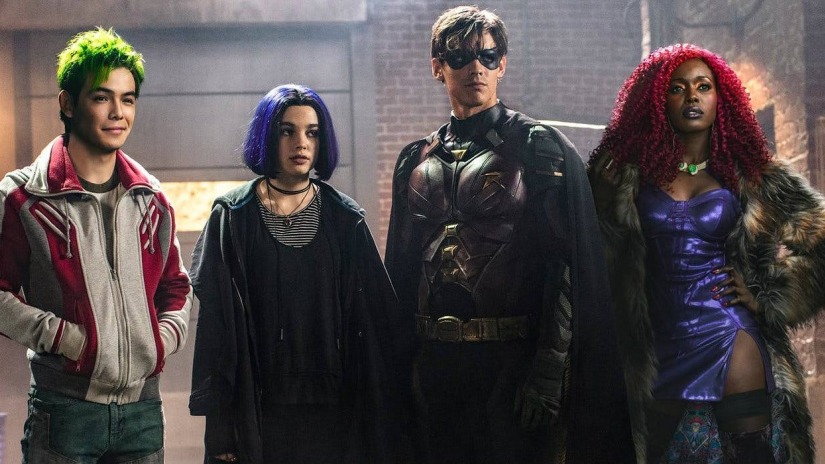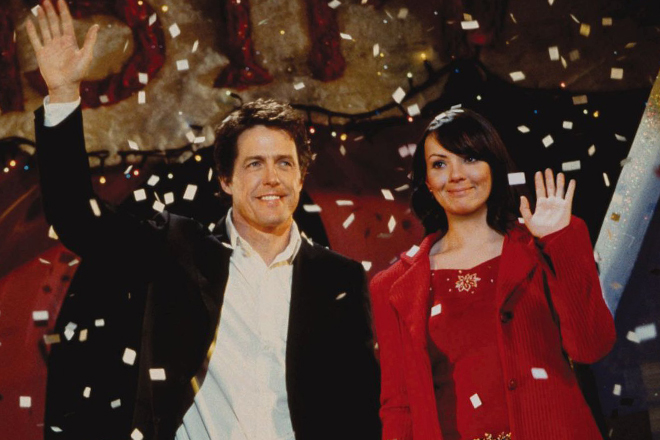Titans Sets Itself Apart from Other DC Adaptations in a Strong Debut
Written by Ian Thomas Malone, Posted in Blog, Reviews
Titans debuts with an additional burden not attached to most new television shows. As the marquee offering of the new DC Universe streaming service, the show is inevitably judged not only by its own merits, but also those of the place it calls home. If that wasn’t enough, there’s also the additional weight of expectation brought upon it as the first live-action Teen Titans adaptation, a franchise that has exponentially grown in popularity this century due to the success of the animated Teen Titans and Teen Titans Go!
None of these burdens are particularly fair. As we saw with Star Trek: Discovery, which similarly serves as the flagship offering of CBS All-Access, television shows take a little bit of time to find their groove even if they’re supposed to carry the weight of an entire streaming service. What impressed me the most about Titans was how little it seemed bothered by the mandate attached to it. It needed no flashy pilot designed to justify its existence. Rather, the show takes a methodical approach to its early episodes, carefully introducing its four lead characters in a way that seems neither rushed nor deliberately slow-walked. By the time the Titans finally come together midway through the season, the viewer has a sense of the stakes at hand for each of the heroes.
Perhaps fitting given the emphasis on teenagers in its source material, the early breakout star of Titans is its youngest member Raven. Played by fourteen-year-old Teagan Croft, the powerful empath anchors the show’s emotional core, delivering a raw performance that conveys the character’s overwhelming sense of abandonment. Another early standout is Anna Diop, who brings a cool confidence to Starfire that exists in stark contrast to the character’s memory loss. Diop dominates nearly every scene she’s in while her character constantly keeps the viewer on their toes, never quite sure what’s coming next. The character’s bright aesthetics are a refreshing contrast to the typically grim color scheme deployed by the show.
Bruce Wayne’s presence looms heavy over Titans despite the lack of an appearance from the caped crusader. Robin’s story is inescapably tangled in Batman’s world, which creates a tricky web to navigate for a show that exists adjacent to the dark knight, a beloved character that most fans would welcome on screen if it weren’t for the fact that this isn’t his show. Titans does a great job presenting Dick Grayson’s story in a way that isn’t purposefully distant from his past while at the same time not creating a situation where the viewer longs for Batman to show up at every corner.
The show was smart to make Robin out to be the parent figure of the team rather than its hotshot leader. Unlike the other three, Dick Grayson doesn’t have any actual superpowers, initially relying on a borderline excessive amount of violence to win his battles that’s toned down in later episodes. Brenton Thwaites brings a welcomed reservation to the role even though Dick Grayson possesses the obvious chip on his shoulder by token of his estranged relationship with his foster father.
Ryan Potter’s Beast Boy often feels like the odd man out in the show’s early episodes, as the character is featured far less than the other three. This issue is perhaps exacerbated by the second episode’s focus on Hawk and Dove, two other DC superheroes who are recurring characters on Titans. It’s not really until the introduction of the Doom Patrol, who are set to star in their own spinoff series, that Beast Boy’s place in the narrative starts to make sense.
Titans manages a much better balance in tone than its recent DC film counterparts. Visually, the bleak settings feel right out of a Zack Snyder movie, but the show possesses a keen ability to reign itself in at times, with well-placed humor to lighten the mood when needed. The production values are a big step up from the DC shows on The CW, justifying the “prestige drama” labels that follow many programs airing first-run on streaming services. The CGI for Beast Boy’s Tiger transformations is especially well-done, looking right out of something you’d find in a feature film.
With a third of its first season still remaining, Titans has gotten off to a great start. There’s a bit of a course correction in tone from the earliest episodes, but you get the sense that the show is quickly learning what works, abandoning the initial ultra-violent combat for more nuanced fight scenes. The cast functions well as a unit, giving the sense that the characters actually like each other as they find themselves in a makeshift family. escortnavi Like Robin, Titans has a lot to live up to, but the show never allows itself to buckle under the weight of its enormous expectations. DC Universe’s first original show is a well-constructed take on a beloved franchise.












